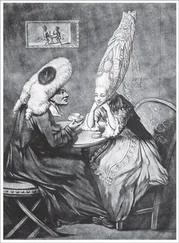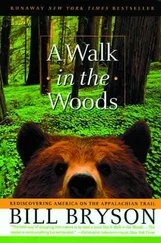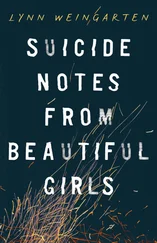Bill Bryson - Notes from a small Island
Здесь есть возможность читать онлайн «Bill Bryson - Notes from a small Island» весь текст электронной книги совершенно бесплатно (целиком полную версию без сокращений). В некоторых случаях можно слушать аудио, скачать через торрент в формате fb2 и присутствует краткое содержание. Жанр: Современная проза, на английском языке. Описание произведения, (предисловие) а так же отзывы посетителей доступны на портале библиотеки ЛибКат.
- Название:Notes from a small Island
- Автор:
- Жанр:
- Год:неизвестен
- ISBN:нет данных
- Рейтинг книги:4 / 5. Голосов: 2
-
Избранное:Добавить в избранное
- Отзывы:
-
Ваша оценка:
- 80
- 1
- 2
- 3
- 4
- 5
Notes from a small Island: краткое содержание, описание и аннотация
Предлагаем к чтению аннотацию, описание, краткое содержание или предисловие (зависит от того, что написал сам автор книги «Notes from a small Island»). Если вы не нашли необходимую информацию о книге — напишите в комментариях, мы постараемся отыскать её.
Notes from a small Island — читать онлайн бесплатно полную книгу (весь текст) целиком
Ниже представлен текст книги, разбитый по страницам. Система сохранения места последней прочитанной страницы, позволяет с удобством читать онлайн бесплатно книгу «Notes from a small Island», без необходимости каждый раз заново искать на чём Вы остановились. Поставьте закладку, и сможете в любой момент перейти на страницу, на которой закончили чтение.
Интервал:
Закладка:
It certainly has very little to do with money. Did you know that the Government spends less per person each year on national parks*"* than you spend on a single daily newspaper, that it gives more to the Royal Opera House at Covent Garden than it does to all ten national parks together? The annual budget for the Lake District National Park, an area widely perceived as the most beautiful and environmentally sensitive in England, is .2.4 million, about the same as for a single large comprehensive school. From that sum the park authorities must manage the park, run ten information centres, pay 127 fulltime staff and forty parttime staff in summer, replace and maintain equipment and vehicles, fund improvements to the landscape, implement educational programmes and act as the local planning authority. That the Lakes are so generally wonderful, so scrupulously maintained, so seldom troubling to mind and spirit is a ringing testament to the people who work in them, the people who live in them and the people who use them. I recently read that more than half of Britons surveyed couldn't think of a single thing about their country to be proud of. Well, be proud of that.
I spent a happy few hours tramping about through the sumptuous and easygoing landscape between Windermere and Coniston Water, and would gladly have stayed longer except that it began to rain a steady, dispiriting rain that I foolishly had not allowed for in regard to my walking apparel and anyway I was growing hungry, so I made my way back to the ferry and Bowness.
Thus it was that I found myself an hour or so and an overpriced tuna sandwich later, back in the Old England, staring out at the wet lake through a large window and feeling bored and listless in that special way peculiar to wet afternoons spent in plush surroundings. To pass a halfhour, I went to the residents' lounge to see if I couldn't scare up a pot of coffee. The room was casually strewn with ageing colonels and their wives, sitting amid carelessly folded Daily Telegraphs. The colonels were all shortish, round men with tweedy jackets, wellslicked silvery hair, an outwardly gruff manner that concealed within a heart of flint, and, when they walked, a rakish limp. Their wives, lavishly rouged and powdered, looked as if they had just come from a coffin fitting. I felt seriously out of my element, and was surprised to find one of them a greyhaired lady who appeared to have put on her lipstick during an earth tremor addressing me in a friendly, conversational manner. It always takes me a moment to remember in these circumstances that I am now areasonably respectablelooking middleaged man and not a gangly young rube straight off the banana boat.
We began, in the customary fashion, with a few words about the beastliness of the weather, but when the woman discovered I was an American she went off on some elaborate tangent about a trip she and Arthur Arthur, I gathered, being the shyly smiling clot beside her had recently taken to visit friends in California, and this gradually turned into what appeared to be a wellworn rant about the shortcomings of Americans. I never understand what people are thinking when they do this. Do they think I'll appreciate their candour? Are they winding me up? Or have they simply forgotten that I am one of the species myself? The same thing often happens when people talk about immigration in front of me.
They're so forward, don't you think?' the lady sniffed and took a sip of tea. 'You've only to chat to a stranger for five minutes and they think you've become friends. I had some man in Encino a retired postal worker or some such thing asking my address and promising to call round next time he's in England. Can you imagine it? I'd never met the man in my life.' She took a sip of tea and grew momentarily thoughtful. 'He had the most extraordinary belt buckle. All silver and little gemstones.'
'It's the food that gets me,' said her husband, raising himself a little to embark on a soliloquy, but it quickly became evident that he was one of those men who never get to say anything beyond the first sentence of a story.
'Oh yes, the food!' cried his wife, seizing the point. 'They have the most extraordinary attitude to food.'
'What, because they like it tasty?' I enquired with a thin smile.
'No, my dear, the portions. The portions in America are positively obscene.''
'I had a steak one time,' the man began with a little chortle.
'And the things they do to the language! They simply cannot speak the Queen's English.'
Now wait a minute. Say what you will about American portions and friendly guys with colourful belt buckles, but mind what you say about American English. 'Why should they speak the Queen's English?' I asked a trifle frostily. 'She's not their queen, after all.'
'But the words they use. And their accents. What's that word you so dislike, Arthur?'
'Normalcy,' said Arthur. 'I met this one fellow.'
'But normalcy isn't an Americanism,' I said. 'It was coined in Britain.'
'Oh, I don't think so, dear,' said the woman with the certainty of stupidity and bestowed a condescending smile. 'No, I'm sure not.'
'In 1687,' I said, lying through my teeth. Well, I was right in the fundamentals normalcy is an anglicism. I just couldn't recall the details. 'Daniel Defoe in Moll Flanders,' I added in a flash of inspiration. One of the things you get used to hearing when you are an American living in Britain is that America will be the death of English. It is a sentiment expressed to me surprisingly often, usually at dinner parties, usually by someone who has had a little too much to drink, but sometimes by a semidemented, overpowdered old crone like this one. There comes a time when you lose patience with this sort of thing. So I told her I told them both, for her husband looked as if he was about to utter another fraction of thought that whether they appreciated it or not British speech has been enlivened beyond measure by words created in America, words that they could not do without, and that one of these words was moron. I showed them my teeth, drained my coffee, and with a touch of hauteur excused myself. Then I went off to write another letter to the editor of The Times.
By eleven the next morning, when John Price and a very nice fellow named David Partridge rolled up at the hotel in Price's car, I was waiting for them by the door. I forbade them a coffee stop in Bowness on the grounds that I could stand it no longer, and made them drive to the hotel near Bassenthwaite where Price had booked us rooms. There we dumped our bags, had a coffee, acquired three packed lunches from the kitchen, accoutred ourselves in stylish fellware and set off for Great Langdale. Now this was more like it.
Despite threatening weather and the lateness of the year, the car parks and verges along the valley were crowded with cars. Everywhere people delved for equipment in boots or sat with car doors open pulling on warm socks and stout boots. We dressed our feet, then fell in with a straggly army of walkers, all with rucksacks and kneehigh woolly socks, and set off for a long, grassy humpback hill called the Band. We were headed for the fabled summit of Bow Fell, at 2,960 feet the sixth highest of the Lakeland hills. Walkers ahead of us formed wellspaced dots of slowmoving colour leading to an impossibly remote summit, lost in cloud. As ever, I was quietly astounded to find that so many people had beenseized with the notion that struggling up a mountainside on a damp Saturday on the winter end of October was fun.
We climbed through the grassy lower slopes into everbleaker terrain, picking our way over rocks and scree, until we were up among the ragged shreds of cloud that hung above the valley floor perhaps a thousand feet below. The views were sensational the jagged peaks of the Langdale Pikes rising opposite and crowding against the narrow and gratifyingly remote valley, laced with tiny, stonewalled fields, and off to the west a swelling sea of hefty brown hills disappearing in mist and low cloud.
Читать дальшеИнтервал:
Закладка:
Похожие книги на «Notes from a small Island»
Представляем Вашему вниманию похожие книги на «Notes from a small Island» списком для выбора. Мы отобрали схожую по названию и смыслу литературу в надежде предоставить читателям больше вариантов отыскать новые, интересные, ещё непрочитанные произведения.
Обсуждение, отзывы о книге «Notes from a small Island» и просто собственные мнения читателей. Оставьте ваши комментарии, напишите, что Вы думаете о произведении, его смысле или главных героях. Укажите что конкретно понравилось, а что нет, и почему Вы так считаете.












